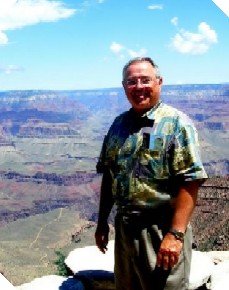
Robert Tracinski from Real Clear Politics.com thanks for a real clear picture of Ayn Rand. Excerpts below, Link above will take you to his complete article.
Thanks to Adrian for sending this on to me. Guilty confession No. one: I have yet to read Atlas Shrugged written by Ayn Rand and published 50 years ago on Oct 10th. (Arrggh- very embarrassing to admit that.) I hereby promise I will read it before Christmas 07!
Excerpts from Mr. Tracsinski's article follow:Throughout most of mankind's history, moralists have warned that individuals driven by "greed" and left free to pursue their self-interest would plunge society into a destructive war of all against all, a system of brutality, plunder, and exploitation--precisely the qualities Marx projected onto the new capitalist system.
Instead, capitalism produced a system of freedom, independence, prosperity, and super-abundant creative energy--while the societies most thoroughly dedicated to the sacrifice of the individual to the collective, the 20th century's Communist regimes, were guilty of the greatest crimes ever recorded.
(
An estimated 100 million people murdered-USSR, China, N.Korea, Cuba,
E. Germany, etc etc..)The lessons of this history were not lost on Ayn Rand, who had escaped from the Soviet Union to America in the 1920s, experiencing in a brief span the most complete contrast between opposing social systems. As her own answer to altruism, Ayn Rand offered a morality of self-interest in which the individual's central moral goal is the pursuit of his own happiness:
"For centuries, the battle of morality was fought between those who claimed that your life belongs to God and those who claimed that it belongs to your neighbors--between those who preached that the good is self-sacrifice for the sake of ghosts in heaven and those who preached that the good is self-sacrifice for the sake of incompetents on earth. And no one came to say that your life belongs to you and that the good is to live it."
Yet what is radical about this idea is not merely Ayn Rand's defense of self-interest but her redefinition of the moral meaning of selfishness.
Most intellectuals have accepted the old altruist caricature of self-interest as brute criminality, as if the only choice we face is between forms of sacrifice: sacrificing ourselves for the sake of others or sacrificing others to ourselves.
(
Take any American History course in College and nearly all Profs. and all texts will hammer Carnegie, JP Morgan, Rockefeller, etc as Robber Barons. No Profs. I had ever pointed out the millions of people who worked for them had a much higher standard of living than those that didn't work for a "Robber Barron" and there were hundreds of people competing to get hired by one of those awful Barrons.)
Yet this caricature is thoroughly refuted by the history of capitalism. The philosophy of altruism gives us a choice between two moral models: Mother Theresa or Al Capone. Yet where is the room in this philosophy for a Bill Gates, a Thomas Edison, or any of the thousands of other figures who populate the history of capitalism, building their own fortunes through the creation of new ideas and products?
For the first time, Ayn Rand recognized the reality and significance of these men and drew a profound moral lesson: that genuine self-interest means, not the short-range conniving of the brute, but the creative thought and productive effort of the entrepreneur.
Ayn Rand's detractors sometimes dismiss her novels as "unrealistic," but it is today's mainstream intellectuals who frequently seem as if they are wandering around in a fog of unreality, missing the monumental lessons of two centuries of history.
The era of encroaching global socialism has since given way to an era of global capitalism, which is beginning to transform the lives of billions of people across the globe, from Eastern Europe to India to China. But there is no one to help them understand what capitalism is, its deepest personal meaning for their lives and values, and why it is good.
No one, that is, except Ayn Rand. And that is why
Atlas Shrugged is even more relevant and necessary today than it was when it was first published five decades ago.
Robert Tracinski writes daily commentary at TIADaily.com. He is the editor of The Intellectual Activist and TIADaily.com.






















